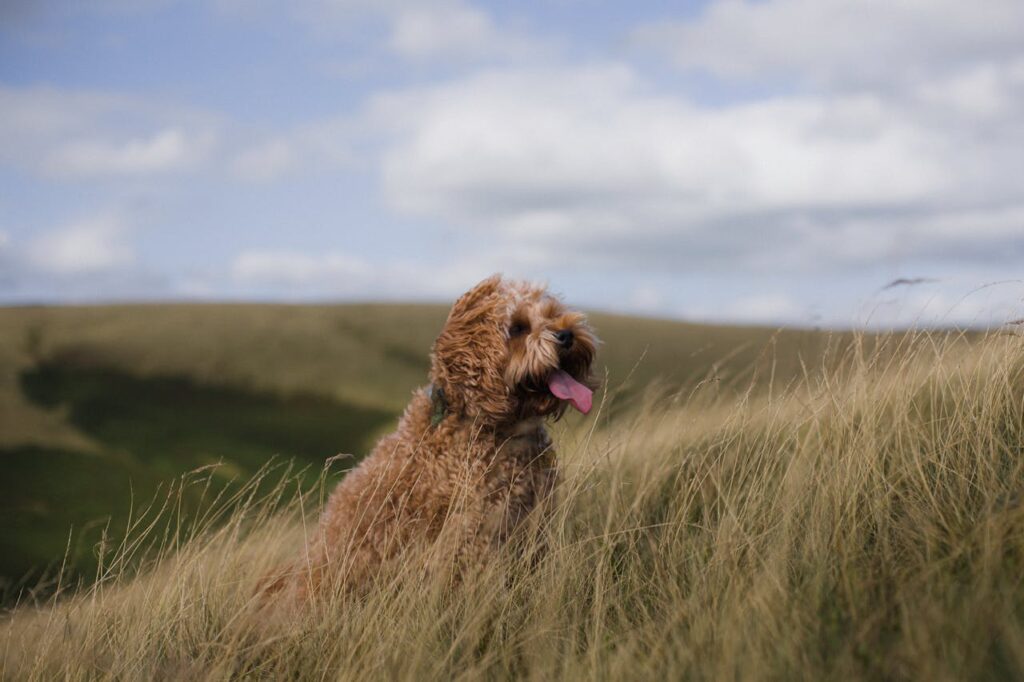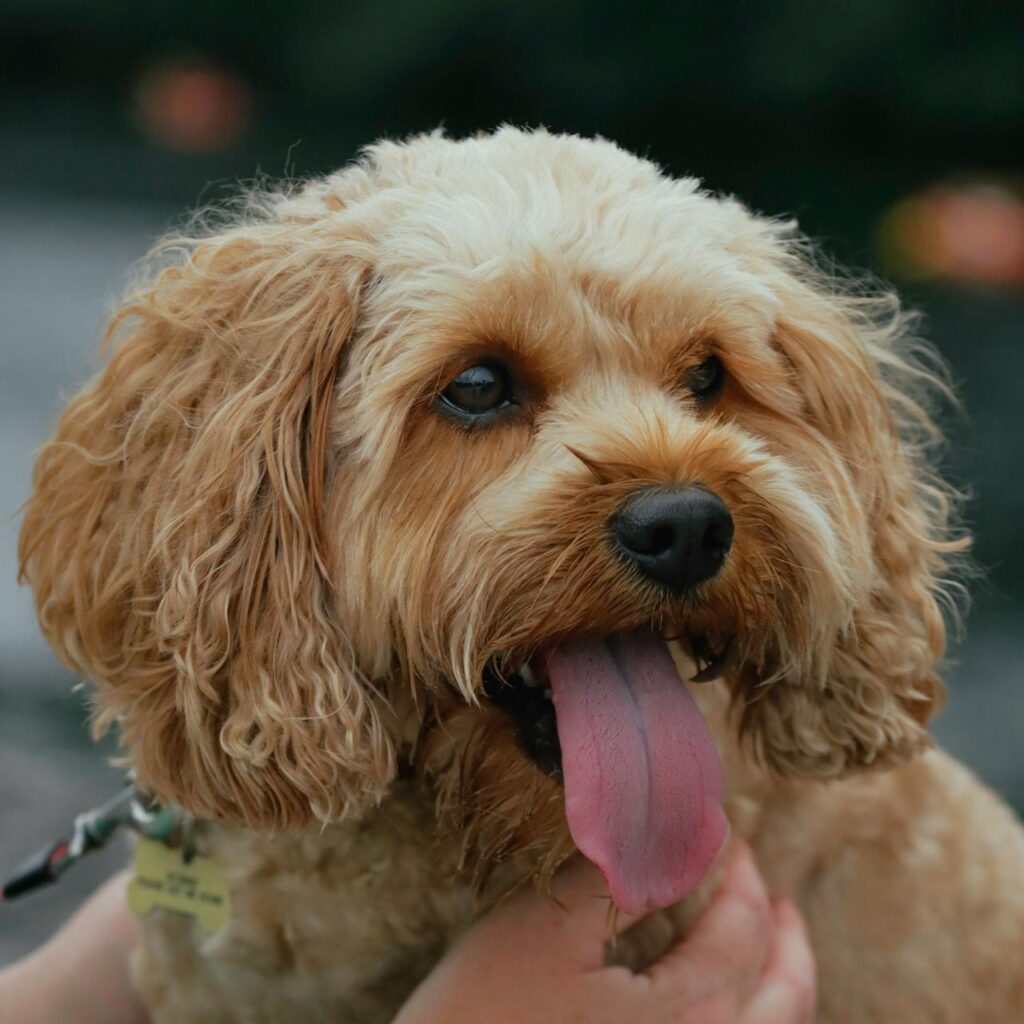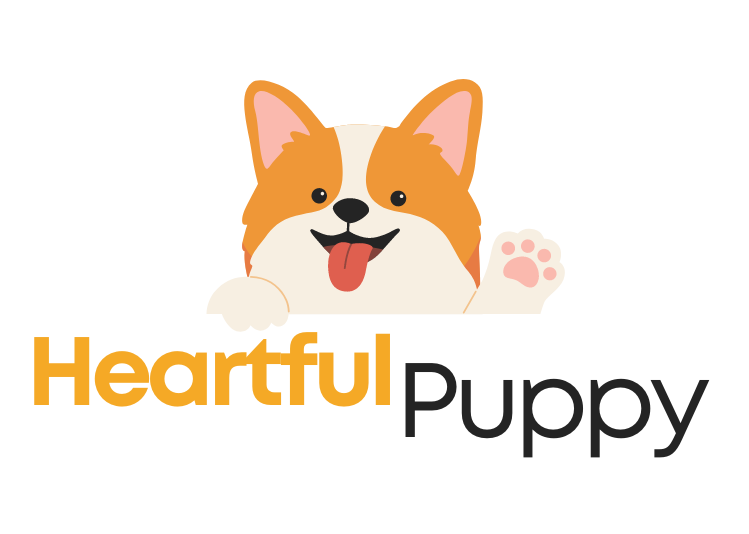Transitioning your Cockapoo puppy to dog is a rewarding yet challenging journey that requires knowledge and dedication. This guide aims to provide you with essential information on training, socialization, health care, grooming, and nutrition. Understanding the stages your dog will go through will help you nurture a well-adjusted and happy adult dog. Whether you’re a new owner or considering adding a dog to your family, you’re in the right place to ensure a joyful and fulfilling relationship with your furry friend.

Understanding the Cockapoo Breed
The Cockapoo is a delightful mix of the Cocker Spaniel and the Poodle, two breeds known for their intelligence and friendly nature. Cockapoos come in various sizes and coat types, depending on the Poodle parent (standard, miniature, or toy). This breed is celebrated not only for its charming looks but also for its affectionate temperament, making them excellent family companions.
Traits of a Cockapoo
- Temperament: Cockapoos are generally friendly, sociable, and eager to please. They are known for being good with children and other pets.
- Intelligence: Thanks to their Poodle lineage, Cockapoos are highly intelligent and can learn commands quickly.
- Energy Level: These dogs have a moderate to high energy level, requiring regular exercise and playtime to stay healthy and happy.
Key Features of Cockapoos
- Hypoallergenic Coats: Many Cockapoos inherit the low-shedding coat of Poodles, making them suitable for allergy sufferers.
- Versatility: Their size and temperament allow them to thrive in various living situations, from apartments to houses with yards.
Understanding these traits is essential as you navigate the transition from puppies to adult dogs.
Early Socialization and Training transition for Cockapoo puppy to dog
One of the most vital aspects of raising a puppy early socialization. Puppies are like sponges, absorbing everything around them. The early months are the perfect time to introduce them to various environments, people, and other pets. Socializing your puppy helps prevent behavioral issues as they grow into dogs.

Importance of Socialization
Socialization is crucial for puppies because it helps them become well-adjusted adults. A well-socialized puppy will be more comfortable in various situations and less likely to develop fear-based behaviors. Here are some key points:
- Expose to Different Environments: Take your puppy to different places, such as parks, pet stores, and friends’ homes.
- Meet New People and Pets: Encourage interactions with a variety of people and friendly dogs to build confidence.
- Introduce New Experiences: From car rides to different sounds and sights, exposing your puppy to new experiences helps them adapt to the world.
Training Tips for Cockapoo Puppy to Dog
Here are some effective training tips to ensure a smooth transition from puppies to a well-behaved adult dogs:
- Positive Reinforcement: Use treats and praise to encourage good behavior. This method is effective for Cockapoos, who respond well to positive feedback.
- Short Sessions: Keep training sessions brief (5-10 minutes) to maintain their attention. Cockapoos can easily become distracted, so short bursts of focused training are ideal.
- Consistency is Key: Use the same commands and routines to help your puppy learn effectively. This consistency will reinforce their learning.
- Basic Commands: Start with essential commands such as “sit,” “stay,” “come,” and “leave it.” These commands are fundamental for safety and obedience.
- Social Training: Incorporate social training into your routine. Practice commands in different environments and around distractions to help your puppy generalize their training.
Health Considerations
As your puppy matures, keeping up with health check-ups and vaccinations is essential. Regular veterinary visits can help catch any potential issues early, ensuring your dog remains healthy and happy.
Common Health Concerns
Be aware of these common health issues that may affect Cockapoos:
- Ear Infections: Cockapoos are prone to ear infections due to their floppy ears, so regular cleaning is vital. Check their ears weekly and keep them dry.
- Hip Dysplasia: This hereditary condition affects many breeds, including Cockapoos. Regular vet check-ups can help monitor your dog’s health, and early detection can prevent discomfort.
- Dental Care: Dental hygiene is crucial for Cockapoos. Regular teeth brushing and dental chews can help prevent tooth decay and gum disease.
- Eye Conditions: Some Cockapoos may develop eye issues such as cataracts or progressive retinal atrophy. Regular vet visits will help catch these conditions early.
Vaccination Schedule
Make sure your puppy is up-to-date on vaccinations. Typical vaccinations for puppies include:
- Distemper
- Parvovirus
- Rabies
- Bordetella (Kennel Cough)
Consult your veterinarian for a tailored vaccination schedule based on your puppy’s needs.
Grooming Needs
Cockapoos often inherit the curly, low-shedding coat of the Poodle, making grooming essential to prevent matting and keep their fur healthy. Here are some grooming tips to consider as your puppy grows:
Grooming Essentials for Cockapoos
- Regular Brushing: Aim for at least two to three times a week. This helps remove loose hair and prevent tangles.
- Professional Grooming: Schedule visits to a groomer every 6-8 weeks to keep their coat in top shape. A professional groomer can also help with nail trimming and ear cleaning.
- Bathing: Bathe your puppy as needed, usually every 4-6 weeks. Use a gentle dog shampoo to avoid skin irritation.
- Ear Care: Check and clean your Cockapoo’s ears regularly to prevent infections. Use a vet-recommended ear cleaner and cotton balls.
- Nail Trimming: Keep your Cockapoo’s nails trimmed to prevent discomfort and injury. If you’re unsure how to trim nails, ask your vet or groomer for guidance.
Grooming Tools to Have
Investing in the right grooming tools will make the process easier:
- Slicker Brush: Great for detangling and removing loose hair.
- Undercoat Rake: Useful for Cockapoos with a thicker coat to remove undercoat.
- Grooming Scissors: For trimming and shaping the coat.
- Nail Clippers: Invest in a quality pair to keep your dog’s nails at a healthy length.
Nutrition and Diet
Feeding your puppy a balanced diet is crucial for their growth and development. Puppies have different nutritional needs than adult dogs, so it’s essential to adjust their diet accordingly.
Feeding Guidelines
Follow these guidelines to ensure proper nutrition:
- Puppy Food: Use high-quality puppy food rich in essential nutrients. Look for a product that lists meat as the first ingredient and is appropriate for your puppy’s size.
- Gradual Transition: When moving to adult food, do so gradually over a week to avoid digestive issues. Mixing the old and new food can help with this transition.
- Portion Control: Monitor portions to prevent obesity, which can lead to other health issues. Consult your vet for specific portion recommendations based on your dog’s weight and activity level.
- Hydration: Ensure your puppy has access to fresh water at all times. Proper hydration is vital for overall health.
Special Dietary Considerations
- Food Allergies: Some Cockapoos may have food sensitivities. If you notice signs of allergies (itchiness, gastrointestinal issues), consult your vet.
- Supplementing: Depending on your dog’s health needs, your vet may recommend supplements like omega fatty acids for coat health or glucosamine for joint support.
Common Behavioral Issues
As your puppy grows, you may encounter some behavioral challenges. Understanding these issues and how to address them will ensure a smoother transition from puppy to adult dog.
Separation Anxiety
Cockapoos are known for their affectionate nature and may experience separation anxiety. Signs include excessive barking, destructive behavior, and attempts to escape when left alone. To alleviate separation anxiety:
- Desensitization: Gradually increase the time you spend away from your dog to help them get used to being alone.
- Safe Space: Create a comfortable area for your puppy with their bed, toys, and some chew items to keep them occupied.
- Interactive Toys: Invest in puzzle toys that dispense treats, which can help keep your dog engaged while you’re away.
Excessive Barking
Cockapoos can be vocal, but excessive barking can be a nuisance. Common reasons for barking include boredom, attention-seeking, or fear. Here’s how to manage it:
- Identify Triggers: Observe when and why your dog barks. This can help you address the root cause.
- Redirect Attention: Teach your puppy a “quiet” command and reward them for being quiet.
- Provide Stimulation: Ensure your dog gets enough physical and mental exercise to reduce boredom-related barking.
Leash Pulling
If your puppy pulls on the leash during walks, it can be frustrating. Here’s how to address it:
- Training Collars: Consider using a no-pull harness or training collar to help manage pulling.
- Focus on Loose Leash Walking: Teach your puppy to walk on a loose leash using positive reinforcement techniques.
- Regular Walks: Ensure your dog gets enough exercise to reduce excessive energy that may contribute to pulling.
Conclusion
The journey from Cockapoo puppies to adult dogs is filled with challenges and rewards that every pet owner should embrace. As we’ve explored, early socialization and training are crucial to shaping a well-behaved adult dog. Regular health check-ups help you stay on top of any potential issues, while consistent grooming ensures your puppy remains healthy and comfortable. Additionally, proper nutrition is essential for their growth and well-being.
By understanding the unique needs of your puppy throughout their development stages, you can foster a loving and supportive environment. Remember, the right combination of training, health care, grooming, and nutrition will set the foundation for a joyful and fulfilling relationship with your furry friend.
As you embark on this rewarding journey, keep these key points in mind:
- Socialization and Training: Start early to prevent behavioral issues.
- Health Care: Regular vet visits are essential for monitoring health.
- Grooming: Consistent grooming will keep your Cockapoo’s coat healthy.
- Nutrition: Provide a balanced diet tailored to their life stage.
Embracing these elements will enhance your experience as your puppygrows from a playful puppy into a cherished adult dog.
Frequently Asked Questions
Feed your Cockapoo high-quality puppy food that is rich in protein and essential nutrients. Look for brands that list meat as the first ingredient.
Groom your Cockapoo at least two to three times a week to prevent matting and maintain a healthy coat. Professional grooming every 6-8 weeks is also recommended.
Common health issues include ear infections, hip dysplasia, dental problems, and certain eye conditions. Regular vet check-ups are crucial.
Use positive reinforcement techniques, keep training sessions short, and maintain consistency in commands and routines to train your Cockapoo effectively.
Identify the triggers for your Cockapoo’s barking and redirect their attention. Ensure they get enough exercise and mental stimulation to reduce boredom-related barking.


2 thoughts on “Cockapoo Puppy to Dog: A Comprehensive Guide for Pet Owners”